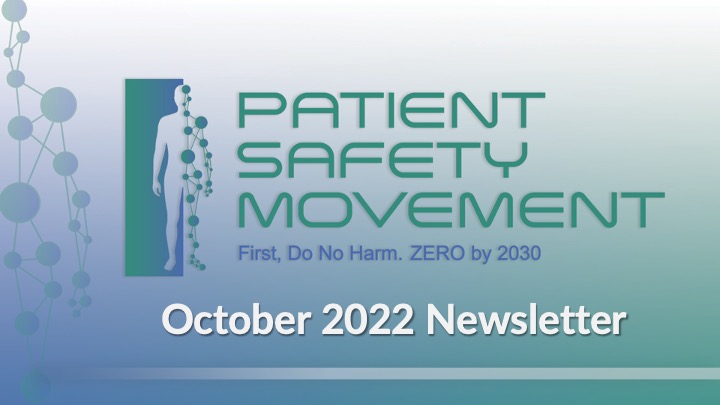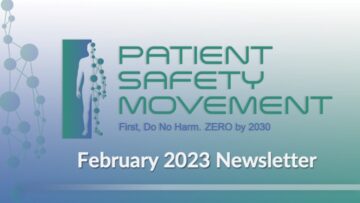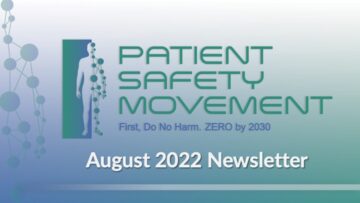JOE KIANI – FORBES

This month, Forbes Magazine featured our Founder and Board Member Joe Kiani on its cover. Joe’s passion for patient safety has been a driving force behind breakthrough developments in medical innovation at the company he founded, Masimo.
Joe is the co-inventor of what is now recognized as “modern pulse oximetry.” His innovation reduced false alarms in pulse oximetry by 95% and changed the way physicians use the “fifth vital sign.” Clinicians were able to use this new accuracy to save babies’ eyesight and detect congenital heart defects in newborns. Joe grew the business from a “garage start- up” to a successful publicly traded company employing more than 6,000 people around the world and monitoring over 200 million people a year. Today, he and his team continue to solve many of the “unsolvable” problems plaguing clinicians and have over 600 patents that include the invention of measure-through-motion pulse oximetry.
BREAST CANCER AWARENESS MONTH

This October’s Breast Cancer Awareness Month comes at a particularly urgent time, as many people have delayed their regular breast cancer screening due to the COVID-19 pandemic. The pandemic also highlighted inequities in breast cancer treatment access, with Black women in the U.S. 40% more likely to die from breast cancer than white women.
According to the Susan G. Komen website, one in eight women will be diagnosed with breast cancer in her lifetime, and in 2022, nearly 44,000 people in the U.S. will die from breast cancer. Thanks to early detection and improved treatments, mortality rates have steadily declined (from about 32% of diagnosed cases in 1992 to 19% in 2020, according to the National Cancer Institute). The best ways to further reduce mortality rates from breast cancer include:
- Knowing the Risk Factors — If you are an older woman with a family history of breast cancer, you are at an increased risk. You can decrease the risk by being physically active, maintaining a healthy weight and diet, and limiting alcohol.
- Getting Screened — A mammogram every year starting at age 40 is recommended for anyone with normal risk. Finding and treating breast cancer early may be lifesaving.
- Being Informed — Understanding more about the different diagnoses and treatments for breast cancer can help patients make better decisions about their health.
When breast cancer is detected early and is in the localized stage, the five-year relative survival rate is 99%, according to the American Cancer Society. Many breast cancer symptoms are invisible and not noticeable without a professional screening, but some symptoms can be caught early by doing monthly breast self-exams and scheduling regular clinical breast exams and mammograms.
Performing monthly breast self-exams will help you detect any changes in your breast. Many people may initially notice one or two breast cancer symptoms or signs, yet their presence doesn’t necessarily mean breast cancer is present. It’s important to speak with a healthcare professional if any unusual changes in the breast or nipple are detected.
GENETIC TESTS FOR BREAST CANCER PATIENTS

An increasingly more accessible way to detect breast cancer risk is genetic testing, including tests now available to consumers for less than $100 without a prescription. A recent report by CBS News examined how genetic tests for breast cancer patients create treatment opportunities as well as confusion. Mutations of the BRCA1 and BRCA2 genes, for example, are associated with a substantially elevated risk of getting breast cancer. However, as the report explains, some experts are concerned that widespread genetic testing may also identify mutations whose impact is unclear, creating anxiety and leading to further testing and to treatment of questionable value—putting patients at higher risk of harm from medical errors needlessly.
Of particular concern, according to the article, “even if doctors recommend genetic testing, they may lack the expertise to determine which tests people need and how to interpret the results. That’s the role of genetic counselors, but their ranks are stretched thin.”
To learn more about this important and developing issue, be sure to read the full article.
NEW FEDERAL EFFORTS TO IMPROVE NURSING HOME SAFETY

The White House has just announced a plan to improve the safety and quality of care in the nation’s nursing homes, aimed to protect seniors from an industry known for its lack of accountability. According to a statement released by the White House, the new actions are designed to “increase accountability of bad actors in the nursing home industry, improve the quality of nursing homes, and make them safer.” These efforts are intended to complement previous investments in services to prevent unnecessary nursing home admissions and help nursing home residents transition back home when possible.
As part of this plan, the Centers for Medicare and Medicaid Services (CMS) announced new actions to strengthen accountability for nursing homes in the Special Focus Facilities (SFF) Program, which oversees the poorest performing nursing homes in the US. These actions increase penalties for nursing homes in the SFF program that fail to improve while increasing safety standards for improvement and offering technical assistance.
In conjunction, the Department of Health and Human Services (HHS) and the Department of Labor (DOL) are announcing newly available funding to support efforts that will increase higher-quality nursing jobs for nursing homes. Research has shown sufficient, high-quality staffing is closely linked to the quality-of-care residents receive. Creating good-paying jobs and career pathways in the nursing home industry promotes the “double dignity” of both patients and workers, according to the White House Fact Sheet.
WORLD’S FIRST NATIONAL GENETIC TESTING SERVICE ANNOUNCED

The UK’s National Health Service (NHS) just announced it will be able to diagnose and potentially save the lives of thousands of severely ill children and babies—within days rather than weeks—with a world-first national genetic testing service. The new service based in Exeter, England, can rapidly process DNA samples of babies and children who are seriously ill or born with a rare disease. Previously, children in intensive care had to undergo extensive testing, with results often taking weeks. Only a simple blood test is now required, allowing medical teams to start lifesaving treatments within days for more than 6,000 genetic diseases. Other patients with more complex illnesses will have a better chance of difficult complications being treated sooner, boosting their quality of life.
Read the full article here.
CONCERNS ABOUT SAFETY OF HOSPITAL WORKERS
The recent shooting in a Texas hospital has put into sharper focus the safety of hospital staff, an issue that began receiving national attention over threats and harassment faced at some medical centers during the COVID-19 pandemic. On October 22, the family member of a patient at Methodist Dallas Medical Center shot and killed two nurses as they entered the room of his girlfriend, who had just given birth and whom he was arguing with and hitting on the head with his gun. Hospital security shot Nestor Hernandez in the leg and subdued him before he killed or injured anyone else.
Since the incident, multiple hospital staff members have reached out to local news affiliate KDFW Fox 4 to express their concerns about safety protocols in the mother/baby unit, which is supposed to be a safe, happy place in the hospital. One staff person interviewed said there have been security concerns for years, including not enough restrictions or oversight.
We must protect the safety of our clinicians and staff.
CHAIRMAN’S LETTER
 Dear Friends and Colleagues,
Dear Friends and Colleagues,
Last month, we recognised 2022 World Patient Safety Day. This day was first suggested in 2016 in London at the Inaugural Ministerial Global Summit on Patient Safety co-hosted in the UK.
At the second Summit in Bonn in 2017, WHO launched its Third Global Challenge on Patient Safety, Medication without Harm, which was the theme of this year’s WPSD. This added to the previous WHO Global Challenges on Clean Hands and Safe Surgery. The aim of this third challenge was to reduce harm from medication error by 50% in FIVE years and introduced the Five Moments in Patient Safety.
These Summits continued on an annual basis in Tokyo and Jeddah until 2020, and next year, after a three-year gap due to COVID, the 2023 Global Ministerial Summit on Patient Safety will return and take place in Montreux, Switzerland.
We are now five years on from that launch, and what have we as leaders and advocates of patient safety achieved within and over the last five years? Well, we haven’t been very successful; in fact, harm is still occurring on a daily basis and at an enormous cost to all our countries and states.
Medication error now costs more than $50B per year, greater than 1% of global health budgets. In the UK alone, with a population of 60M, we estimate that there are greater than 250M errors of which 66M are potentially clinically significant. Tragically, this is also at the unacceptable cost of thousands of lives lost forever.
The key to our understanding is our ability to collect reports from all elements and settings of healthcare. The reporting system in the UK is the largest such system in the world and is a direct consequence of the work to create key policy initiatives of transparency and data sharing to reduce avoidable harm in healthcare. Politicians, practitioners, and the public are working together on this initiative. This policy development of enabling national and local reporting and analysis has identified that most errors occur in prescribing and administration: the wrong drug, the wrong patient, the wrong dose, or the wrong route.
Important policy shifts now ensure the continual involvement and empowerment of all patients and their caregivers in the control and management of their medications. A key element of the Global Challenge and also the Global Patient Safety Action Plan is to encourage and actively support patient and caregiver involvement and empowerment in managing their own medication safety.
This collaboration between practitioners, politicians, and the public has already borne significant fruit with our work to reduce avoidable deaths and harm from Venous Thromboembolism(VTE).
This importance of collaboration on transparency and data sharing is well illustrated through the efforts of influential doctors over the years, such as Codman at the beginning of the last century, who brought us structured case note review; Deming, the father of quality process; Leape and Reason, whose leadership brought modern-day error analysis to healthcare; Donabedian, who reminded us of the importance of the relationship between structure, process, and outcome; and more recently, Don Berwick of IHI, Gary Kaplan of Virginia Mason, and Tejal Gandi of the Lucian Leape Institute.
In particular, Don, when he carried out his review of the quality and safety of the NHS, challenged us to become a system of learning, top to bottom and end to end. We now have fully embedded 15 Patient Safety Learning and Research Collaboratives across the country and over 3,000 Q Fellowships on Patient Safety in partnership with The Health Foundation as key elements of a national safety improvement culture.
Please join us in driving forward the continuing efforts to learn from our mistakes, share our data, and fight for transparency of outcomes across all our healthcare systems and settings.
Yours,

Mike Durkin, OBE, MBBS, FRCA, FRCP, DSC
GOVERNANCE BOARD
Mike Durkin, OBE, MBBS, FRCA, FRCP, DSC, Chairman of PSMF, Senior advisor on Patient Safety Policy and Leadership, Institute of Global Health Innovation, Imperial College London
Steven J. Barker, PhD, MD, Chief Science Officer, Masimo Corporation, Professor Emeritus of Anesthesiology, University of Arizona Health Sciences
Robin Betts, RN, CPHQ, MBA-HA, Vice Chair, PSMF, Vice President, Safety Quality & Regulatory Services, Kaiser Foundation Hospitals and Health Plan, Kaiser Permanente Northern California
Alicia Cole, Patient Safety Consultant
Javier T. Davila, MD, MFS, Ambassador, PSMF in Mexico, Former Medical Director, Mexican Social Security Institute, Head of Medical Education, Research and Health Public Policy
Omar Ishrak, PhD, Executive Chairman and Chairman of the Board of Directors, Medtronic, Chairman of the Board of Directors, Intel
Philip D. Lumb, MB, BS, MD, MCCM, FCCP, Professor of Anesthesiology and Trauma Surgery, Keck School of Medicine at University of Southern California
Joe Kiani, Founder and Immediate Past Chairman of PSMF, Founder, Chairman & CEO of Masimo
Sarah Kiani, Director, Masimo Foundation for Ethics, Innovation, and Competition
David B. Mayer, MD, Executive Director, MedStar Institute for Quality and Safety
Jannicke Mellin-Olsen, MD, DPH, Past President, World Federation of Societies of Anesthesiologists
Jim Messina, CEO, The Messina Group
Najmedin Meshkati, Ph.D, MS, Professor of Civil/Environmental Engineering, University of Southern California
Charlie Miceli, CPM, Treasurer, PSMF, Chief Supply Chain Officer, Network VP of University of Vermont Health Network
Michael A.E. Ramsay, MD, FRCA, Chief Executive Officer, PSMF
Abbasseh Towfigh, MPD, Executive Director and Secretary, Ayeneh Foundation
Vonda Vaden Bates, Patient Advocate, CEO, 10th Dot

OUR STORY

In 2012, Joe Kiani founded the nonprofit Patient Safety Movement Foundation (PSMF) to eliminate preventable medical errors in hospitals. His team worked with patient safety experts from around the world to create Actionable Evidence-Based Practices (AEBP) that address the top challenges. The AEBP is available without charge to hospitals online.
Hospitals are encouraged to make a formal commitment to ZERO preventable deaths, and healthcare technology companies are asked to sign the Open Data Pledge to share their data so that predictive algorithms that can identify errors before they become fatal can be developed. The Foundation’s annual World Patient Safety, Science & Technology Summit brings together all stakeholders, including patients, healthcare providers, medical technology companies, government employers, and private payers. The PSMF was established through the support of the Masimo Foundation for Ethics, Innovation, and Competition in Healthcare. For more information, please visit psmf.org.
![]()







